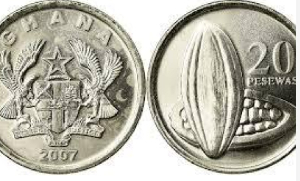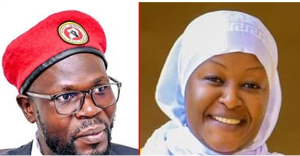Participants at a consultative forum held in Bolgatanga has called on Government to as a matter of urgency institute a law on mineral revenue and management to ensure accountability, transparency and equitable distribution of resources.
The forum was organised by the Africa Centre for Energy Policy and IBIS Ghana and facilitated by the Northern Patriots in Research and Advocacy (NORPRA), non-governmental organisations (NGOs).
It was aimed at seeking inputs on policy framework and legislation to be passed to regulate the management of revenue accrued from mineral resources such as gold and bauxite.
The participants, who were drawn from Civil Society Organisations, the Minerals Commission, community members, the Trade Union Congress, traditional authorities, the media, opinion leaders among others, argued that just like the Oil sector that had the Petroleum Management Law, there was the need for a Mineral Revenue Management law to ensure transparent management of minerals resources such as gold and bauxites.
They pointed out that 80 per cent of mineral revenue from mining companies were paid into government’s consolidated fund, and that made it difficult for stakeholders to track how such funds were utilized.
They therefore proposed the creation of a Mineral Revenue Holding Fund to handle and distribute mineral revenues between the government and communities.
The government, they proposed, should use its share of such revenues to set up a Sovereign Mineral Fund, which should be used for annual budget support, stabilisation of the budget, and for future generations.
“A condition should be included that only 60 per cent of the balance in the Sovereign Mineral Fund can be transferred to the Annual Budget, whilst the rest is invested in qualifying instruments to be used in times of revenue shortfalls.
“In times of revenue shortfalls, the withdrawal from the Sovereign Mineral Fund should not be too much as to affect the liquidity of the Fund and fiscal sustainability,” they stressed.
They also proposed that the communities’ share of mineral revenues be transferred to a Community Mineral Development Fund, and that deposits and withdrawals rules subject to Parliamentary approval be defined.
The participants, who suggested that the Bank of Ghana be given the mandate for the operational management of the Minerals Revenue Holding Fund, and the Sovereign Mineral Fund, also stressed that there should be no borrowing from the Petroleum Holding Fund, the Sovereign Mineral Fund and the Community Mineral Development Fund.
In furtherance, they suggested that the Community Mineral Development Fund be managed by a Fund Manager appointed by the Bank of Ghana.
They also urged the government to spend the annual budget allocation on capital infrastructure and the priority areas be limited to projects that had social and economic multiplier effects on development such as education, health, agriculture and road and rail infrastructure.
Dr Amin Anta, Executive Secretary of Africa Centre for Energy Policy, mentioned that countries including Botswana and Brazil spent a chunk of the revenue generated from their mineral resources on education and that had helped in the development of those countries.
“Mineral revenues had been used for consumption rather than investments, public financial management are poor as it makes it difficult to track mineral revenues and development projects funded with the revenues.
Transparency in the management of mineral revenues is limited to the Extractive Industries Transparency Initiative (EITI) process.”
He expressed the optimism that if the Government listened to the proposals and implement them, it would help address some of the major challenge in the mining sector and help improve upon the livelihoods of the people.
The President of NORPRA, Mr Bismark Adongo Ayorogo, stressed that his outfit with support from other partners would continue to advocate that the government adopted the proposals to bring about development.
Business News of Friday, 5 September 2014
Source: GNA












